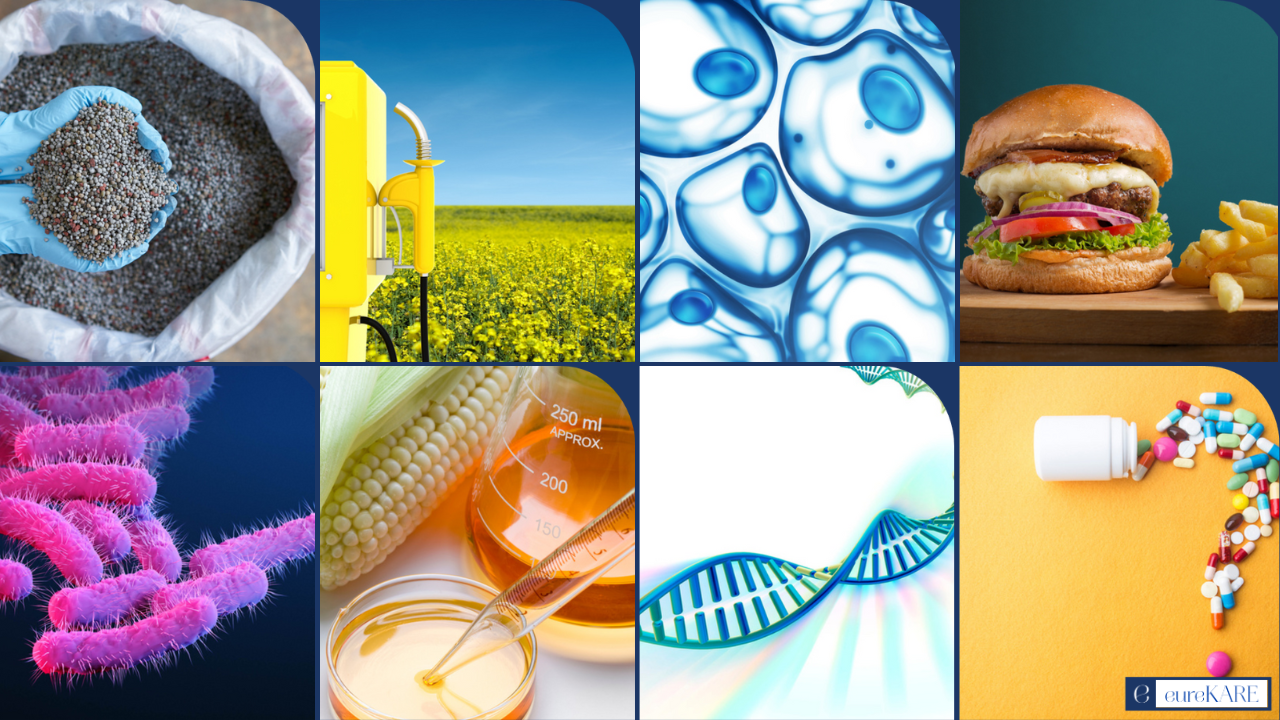Pioneering Synthetic Biology Innovations: Exploring the Frontier

Synthetic biology represents a cutting-edge
interdisciplinary field that amalgamates principles from biology, engineering,
and computational sciences to engineer novel biological systems with tailored
functionalities. This innovative approach holds immense promise in addressing
pressing societal challenges, ranging from healthcare and agriculture to
renewable energy and environmental sustainability. In this comprehensive
report, we embark on a journey to unravel the latest synthetic biology
innovations, elucidate their applications across diverse domains, examine
ethical considerations, confront challenges, and envision future trajectories.
Principles
of Synthetic Biology
Synthetic biology is underpinned by several
foundational principles:
Design
Principles: At the heart of synthetic biology lies
the design of biological systems with predefined functionalities. Design
principles encompass modularization, standardization, and abstraction, enabling
the construction of genetic circuits, metabolic pathways, and cellular systems
with predictable behaviors and outcomes.
Engineering
Approaches: Synthetic biology leverages engineering
methodologies to manipulate biological components and assemble them into
functional systems. Techniques such as DNA synthesis, genome editing, and
directed evolution empower researchers to engineer organisms with novel traits,
ranging from enhanced productivity to resistance against pathogens.
Computational
Modeling: Computational tools and algorithms play a
crucial role in synthetic biology, facilitating the design, simulation, and
optimization of biological systems. Modeling approaches, including mathematical
modeling, stochastic simulation, and machine learning, enable researchers to
predict system behavior, identify design constraints, and guide experimental
design.

Applications
of Synthetic Biology Innovations
Synthetic biology innovations find
applications across diverse domains:
Biomedical
Applications: Synthetic biology holds promise in
biomedical applications, including drug discovery, regenerative medicine, and
disease diagnostics. Engineered cells and tissues serve as platforms for drug
screening, personalized medicine, and tissue engineering, offering novel
approaches to combat diseases such as cancer, diabetes, and neurodegenerative
disorders.
Industrial
Biotechnology: Synthetic biology revolutionizes
industrial biotechnology by enabling the production of bio-based chemicals,
fuels, and materials. Engineered microorganisms and enzymes catalyze
bioconversion processes, such as fermentation and biocatalysis, to produce
sustainable alternatives to fossil fuels, plastics, and pharmaceuticals,
thereby reducing reliance on finite resources and mitigating environmental
impact.
Agricultural
Innovations: Synthetic biology innovations enhance
agricultural productivity, sustainability, and resilience. Engineered crops
with traits such as increased yield, disease resistance, and nutrient
utilization efficiency offer solutions to address global food security
challenges, while bioengineered microbes contribute to soil health, crop
protection, and nutrient cycling in agroecosystems.
Environmental
Remediation: Synthetic biology offers novel
strategies for environmental remediation and ecosystem restoration. Engineered
microorganisms and plants are deployed for bioremediation of contaminated soils
and waters, carbon sequestration, and restoration of degraded ecosystems,
thereby mitigating pollution, climate change, and biodiversity loss.
Biosecurity
and Biosafety: Synthetic biology innovations raise
concerns regarding biosecurity and biosafety risks, including the deliberate
misuse or accidental release of engineered organisms. Regulatory frameworks,
risk assessment protocols, and biocontainment strategies are essential to
ensure responsible conduct of synthetic biology research and prevent unintended
consequences on human health and the environment.
Ethical
Considerations
Synthetic biology presents ethical
considerations that warrant careful deliberation:
Dual-Use
Dilemma: The dual-use nature of synthetic biology
raises ethical dilemmas regarding the potential misuse of engineered organisms
for harmful purposes. Ethical frameworks, biosecurity measures, and
international collaborations are essential to mitigate the risks of
bioterrorism, bio-warfare, and unintended consequences arising from synthetic
biology research.
Environmental
Impact: Engineered organisms may have unintended
ecological impacts on natural ecosystems, including disruption of native
biodiversity, ecosystem functions, and ecological interactions. Environmental
risk assessment, ecological monitoring, and public engagement are crucial to
anticipate and mitigate potential environmental risks associated with the
release of engineered organisms into the environment.
Social
Justice and Equity: Synthetic biology innovations
should be developed and deployed in a manner that promotes social justice,
equity, and inclusivity. Ethical considerations include equitable access to
benefits and risks of synthetic biology technologies, transparency in decision-making
processes, and engagement with diverse stakeholders, including communities
affected by synthetic biology research and applications.
Challenges
and Future Directions
Synthetic biology faces several challenges
on its path to widespread adoption and impact:
Complexity
and Predictability: Biological systems exhibit
inherent complexity and unpredictability, posing challenges in the design,
modeling, and engineering of synthetic biological systems. Advancements in
computational modeling, high-throughput experimentation, and systems biology
approaches are needed to enhance the predictability and reliability of
synthetic biology designs.
Standardization
and Modularization: Standardization of biological
parts, devices, and systems is essential to enable interoperability,
reproducibility, and scalability in synthetic biology research and
applications. Efforts to develop standardized genetic tools, biological parts
repositories, and modular assembly techniques are critical to facilitate
collaborative research and accelerate innovation in synthetic biology.
Ethical
and Regulatory Frameworks: Ethical and regulatory
frameworks must evolve to address the unique ethical, social, and environmental
implications of synthetic biology research and applications. Collaborative
efforts between policymakers, scientists, ethicists, and civil society are
needed to develop adaptive regulatory frameworks that balance innovation, safety,
and ethical considerations in synthetic biology.
Education
and Public Engagement: Education and public
engagement are essential to foster informed discourse, ethical awareness, and
responsible stewardship of synthetic biology. Educational initiatives, public
forums, and outreach programs can empower diverse stakeholders, including policymakers,
students, and the general public, to engage in meaningful discussions about the
benefits, risks, and societal implications of synthetic biology.
Global
Collaboration and Governance: Synthetic biology is
a global endeavor that requires international collaboration, knowledge sharing,
and governance mechanisms to address global challenges and ensure responsible
innovation. International consortia, collaborative research networks, and
multilateral agreements can foster cooperation, capacity-building, and
technology transfer in synthetic biology research and applications.
Editor’s
Thoughts:
Synthetic biology represents a frontier of
scientific innovation with transformative potential across diverse domains,
from healthcare and agriculture to environmental sustainability and
biosecurity. By harnessing the principles of design, engineering, and
computation, synthetic biology pioneers novel approaches to address pressing
societal challenges, offering solutions that are sustainable, equitable, and
ethically responsible. Despite the complexities and challenges ahead, the
trajectory of synthetic biology promises a future where engineered biological
systems contribute to human well-being, environmental stewardship, and global
prosperity.


